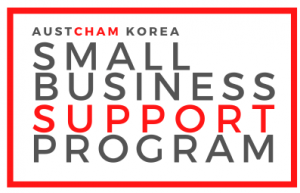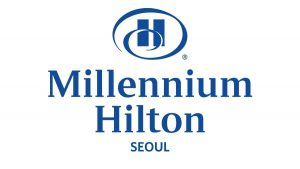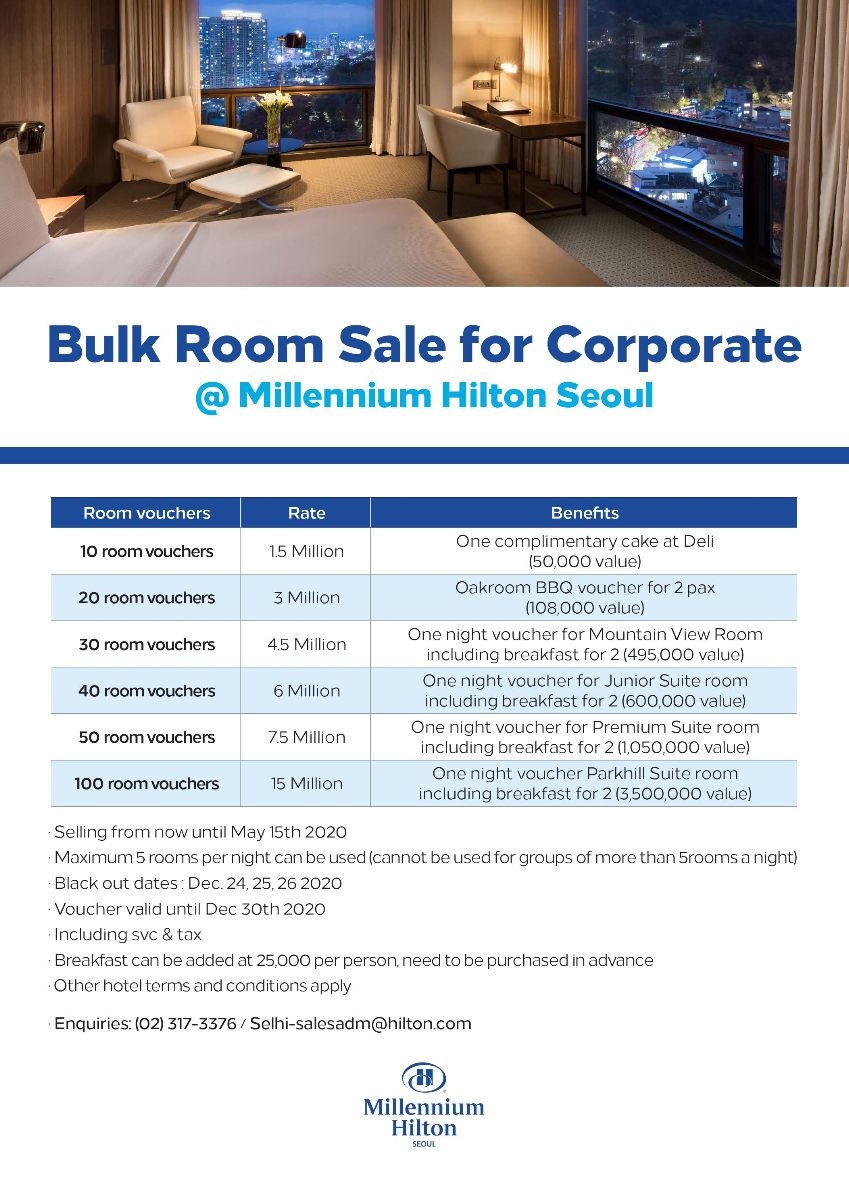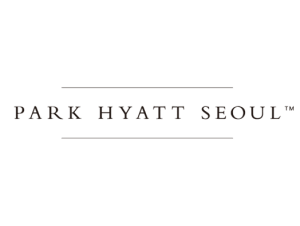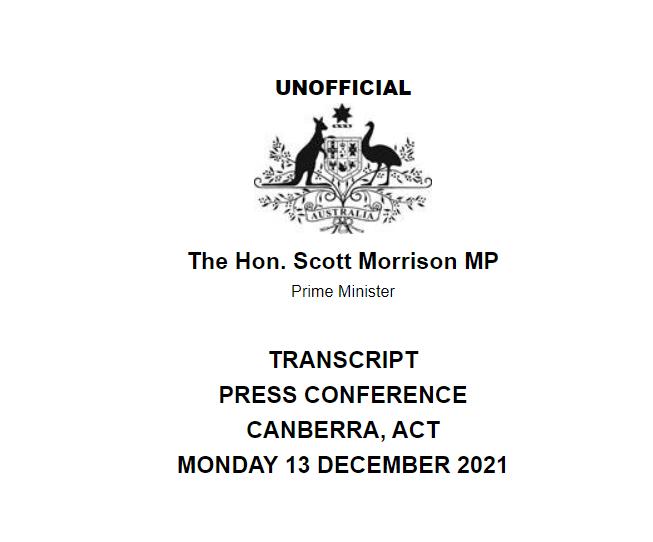
[Media Transcript] Prime Minister Morrison’s Press Conference With President Moon
PRIME MINISTER: Welcome, Your Excellency, President Moon. It is a great honour to have you here in Australia on what is your first ever trip to Australia, along with First Lady Kim as a guest of our government on this important state visit. The first of these we have had since the outbreak of COVID. Hwan-yeonghada. Welcome. As you know, President Moon, the friendship between our nations is deep and historic. From Kapyong to here we are now in Canberra. Our ties were forged during the Vietnam, during the Korean War. Australia was the second nation after the United States to come to Korea’s aid in those very dark days. More than 17,000 Australians fought to defend your freedom and indeed the freedom of all liberal democracy, peace loving countries in these conflicts. Some 70 years ago, this took place, and now we mark 60 years of our diplomatic relations. And during this time, Australia has shown unwavering support for peace on the Korean Peninsula, and we reaffirm, affirm this again today. And I particularly want to pay tribute to His Excellency’s wisdom, his passion, his vision and his commitment to securing that peace on the Korean Peninsula. He has stood tall on these issues over many years. We are proud in Australia to have contributed to Korea’s economic growth, just as Korea has contributed to ours. It has been such a mutually beneficial partnership. Today, as always, our economies complement each other. We are important trading partners and we welcome the prospect of Korea joining the CPTPP and we look forward, should they wish to take that decision and step, we look forward to being an encouraging partner. The CPTPP sets a high bar for countries that understand the importance of the rule of law and trade, that deals with its partners fairly and consistently in a way that promotes free trade. And Korea has already achieved those marks not only in their relationship with Australia, but with the many trading partners with whom they have trusted relationships. This investment goes in both directions, and we look forward to that continuing.
We are also important security partners, as we have just witnessed with the Hanwha Howitzer contract, a billion dollar armoured vehicle centre for excellence to be located in the Geelong region and a big shout out to all of those in Geelong. This is the delivery of an important commitment of our government that we made. It’s an important further chapter in the Defence Industry story for Australia as we continue to build our sovereign capability. And Korea is an important partner in that journey, both in our security arrangements but also in the building of our sovereign capability in defence manufacturing.
We also have tourism and education links that run deep. Some 20,000 Korean students come and study in Australia, and we are looking forward to welcoming them back, as we are the many tourists and business travellers and skilled migrants. And on Wednesday of this week, we will move again forward. The borders will be reopened both to Korea and Japan and for skilled migration and for students, as we conclude the pause that we announced several weeks ago. This is made possible because Korea and Australia have both shared a COVID-19 experience. Korea has had an extraordinary set of achievements in managing the virus, and the President and I have discussed on many occasions during the course of the pandemic where we have been able to meet in person at various multilateral fora around the world, the G7 plus, the G20. And we have learnt from the Korean experience here in Australia, as I’m sure in the stories we’ve been able to exchange on our experience that has helped inform the Korean response. So together we are two countries that have had one of the lowest death rates from COVID in the world. We have both got one of the strongest economies, each of us, moving through COVID and we share high vaccination rates. Australia and Korea have some of the highest vaccination rates, double dose of anywhere in the world. And so that is allowing our economies to open up.
And we see that today here in Australia, as the borders come tumbling down there in between Queensland and the rest of the country. And Australians are being reunited because of their efforts to get vaccinated. And to see families reunited to see Australians coming together as we get to the end of this year, this is encouraging, but I know the more than 123,000 Australians of Korean ancestry will be looking forward to seeing their friends, their family and them being able to join together. And that has been made possible because of the outstanding achievements in Korea in managing COVID, and I congratulate the President on their achievements.
We look forward to proceeding with the many agreements that we have announced today, whether in defence, defence materiel, the Memorandum of Understanding to establish an implementation plan for Australia and Korea’s Low Zero Emissions Technology Partnership that the President I agreed we would proceed with when we met together in the UK, at Carbis Bay, at the G7. This is one of many of these partnerships because both Korea and Australia understand that the path to net zero will not come at the expense of our industries and our economies, and the momentum that has been built up in trade and jobs and innovation and technology. We understand that these are problems to be solved and overcome, and that partnership we have on the road to net zero through technology is an important one that I look forward to us achieving. And there is the critical minerals MoU as well. This is an area where Australia and Korea is already working very closely together to build those reliable, trusted supply chains in these critical minerals and rare earths that we know will power the new energy economy and the global economy into the future.
Our space cooperation for peaceful purposes, Korea again a leader there and Australia through our National Space Agency in Adelaide, leading the way with these new partnerships that will see Australia also play a significant role in space. Our MoU on digital cooperation initiatives in South East Asia again reinforce our commitment to being, along with Korea, a major top 10 digital economy of the future. And our people to people relationships which are reinforced each and every day. And I want to conclude by thanking President Moon for his deep dedication to this relationship. He has extended me great courtesy and friendship over these past three years, and I appreciate that very much, and I am so pleased that Jenny and I have been able to welcome him and Madam Kim today and tomorrow here in Australia. We are looking forward to the time we will now share together with the Governor-General and in other engagements, and I know the many other meetings that he has. Together, we share a view about the role of liberal democracies in today’s world and particularly in the Indo-Pacific. We understand how important it is for the rule of law, for multilateral organisations that are based on a world order that favours freedom, that countries in our own region can have choices, choices in their economy, choices for their peace and security. And we look forward in particular to that day, President Moon, to the day that the Korean Peninsula will have peace and stability long into the future. I thank you and I invite you to make some comments.
HIS EXCELLENCY MOON JAE-IN, PRESIDENT OF THE REPUBLIC OF KOREA: [TRANSLATION] Your Excellency, Prime Minister Morrison. Thank you very much for the warm hospitality. You’ve invited me as Australia’s first guest since the COVID-19 outbreak, and today our two countries have formed a closer cooperative relationship. I think this will be a great gift for the people of two countries to celebrate the 60th anniversary of diplomatic ties. Australia and Korea have forged strong cooperative relationship various areas, including economy, defence, science and technology. The two countries which have grown together as essential and exemplary democratic mid-sized countries and the powers of the Asia-Pacific region have become proud leaders of the international community and have been invited to the G7 summit this year.
The international order is undergoing rapid changes amid COVID-19, the climate change crisis and supply chains instability to countries which share the same values such as democracy, human rights and market economy, will take on the new challenges through closer cooperation. Today, Prime Minister and I advanced our bilateral relations and elevated into a comprehensive strategic partnership. Together, our two countries will lead forward as global leaders and move forward vigorously towards a future of shared prosperity.
First, we agreed to strengthen strategic cooperation for fostering regional stability, peace and prosperity. We are going to expand security cooperation, national defence and defence materials and cyber technology, in particular with the self-propelled artillery project signed today as a signifier and a starting point to will strengthen strategic defence cooperation. Prime Minister actively supported the Korean people’s efforts in the peace process, and the two countries have agreed to continue working together towards a denuclearisation and lasting peace on the Korean Peninsula and also peace and prosperity in the Indo-Pacific region. We also had in-depth dialogue on how to surmount COVID-19, we’ll respond to Omicron variant and expand the vaccine supply to improve health security in the region through joint efforts. For Korean people who are fully vaccinated, I appreciate that the Australian Government will, the government will grant quarantine free entry starting from December 15th. I hope this measure will lead to more active exchange and economic revitalisation.
Second, we have agreed to nurture our key future industries together. The two countries have declared to achieve carbon neutrality by 2050 and are focusing on the transition to a low carbon economy. Today, Prime Minister Morrison and I signed the MoU regarding implementation plan for low and zero emissions technology partnership by broadening the horizon of collaboration to more eco-friendly technologies such as the hydrogen economy, solar power and carbon capture mechanisms. We will turn carbon neutrality into an opportunity to create new jobs and industries. We have also decided to strengthen space cooperation. Australia established a space agency in 2018 and is spurring efforts to foster its space industry. Korea has also set a new turning point for space development with the launch of the nuclear rocket this year. I hope that the MoU regarding space cooperation will enhance exchange and foster cooperation in fields ranging from space exploration and the launch vehicle industry to satellite navigation, and I hope this agreement begin, become the stepping stone for the two countries to expand into space together.
Third, we agreed to strengthen supply chain cooperation. Australia, the world’s richest country in mineral resources, and Korea, a major producer of batteries and electric vehicles, play an important role in the global supply chain. Our two countries share the view that establishing a stable mineral supply chain is important not only for the two countries, but also for the global economy, and we have signed the MoU on cooperation and critical minerals supply chain. We will systematically cooperate throughout the entire resource development cycle, including mineral exploration, development, production and mining disaster management. Further strengthening human exchange and technical cooperation.
Today, the two countries have set a new milestone in cooperation based on the solid friendship and trust we have built over the past 60 years. We will together prepare for a new era. I would like to express my special appreciation to the Australian people for their support in the past when Korea was undergoing significant hardship. And I hope that the cooperation between the two countries serves as a driving force toward opening a hopeful new year for the people of both nations. Thank you.
PRIME MINISTER: Thank you very much, your Excellency. We have four questions from the media today, and the first of those goes to KBS.
JOURNALIST: [TRANSLATION] [Inaudible] I have two questions for the two leaders. My first question goes to President Moon. Australia has had a bit of dispute with China over the coal export, and it was also declared it’s going to boycott the Beijing Olympic Games and you are visiting Australia at this time and you’re exporting arms to Australia. That may give a negative signal to China. What’s your view on this? Please respond. And another thing, you have not made a statement about your position on the diplomatic boycott to the Olympic Beijing Olympic Games. When will you make an official opinion and when you announce that? And to the Australian Prime Minister, you made a pact today over the defence, a defence project. What’s your evaluation of the defence industry of Korea? And there is a five trillion project [inaudible], and I would like that the armoured vehicle, what is the likelihood of Korea winning this project without competition with a foreign country?
HIS EXCELLENCY MOON JAE-IN, PRESIDENT OF THE REPUBLIC OF KOREA: [TRANSLATION] With regards to the Beijing Olympics on the diplomatic boycott. We have not received a request from any other country, including the United States, to participate in a diplomatic boycott. We are not considering a boycott measure. With regard to AUKUS, we respect the decision made by a sovereign state Australia, and this is a decision made by Australia as a sovereign nation. And we respect that. And Australia is making efforts for peace and prosperity in the Indo-Pacific region and within the region that Australia does not desire disputes arising in the region. And for peace, we will continue to cooperate with Australia to for peace in this region. The State Visit I make at this time has nothing to do with our position over China. And we do believe that between Korea and Australia is very important that we cooperate over the core minerals and for the hydrogen economy and for the low carbon emissions technology and for the self-propelled artillery to be produced for the first time in Australia. We would like to cooperate with the Australia for that. This is very important for the national interest of Korea, excuse me, and for our national interest and to promote the peace and prosperity in the region and to facilitate recovery of the global economy. That’s very important for us.
PRIME MINISTER: Well, thank you, your Excellency. The contract that we’ve signed today, I think, speaks volumes about what we believe are the capabilities of the Korean defence industry and the fact we have Hanwha here with us today. The fact that we’re moving forward with this partnership, I think speaks to the trust as well as the skills, transfer and opportunities that are there for Australian Defence Industry, particularly there in Geelong. This centre of excellence will not only see us acquire the capabilities that we believe are very important for the Australian Defence Forces, but they will also build a workforce. They will also build the skills that Australians are developing and building on to ensure our own sovereign capability. And so when you are engaging with other countries in these types of contracts, it is it is an objective to be doing so with those countries who are like minded in their outlook. And I think between Korea and Australia, we share a very similar view and a similar aspiration for the Indo-Pacific. So that places Korea in I think in a very strong position amongst the many who are engaged in our competitive tendering processes for future contracts. And of course, Land 400 is one of those, but they will follow the same processes that we always do, and we very much appreciate the level of interest engagement that we’ve had from Hanwha and other and other companies in the past that have sought to work with Australia. Korea are a trusted partner. And so we will we will work closely with them and we look forward to this particular partnership. As I know now, the people of Geelong will, because that means 300 jobs, minimum, spread across the facility, construction, acquisition and maintenance, as well as generating ongoing support opportunities for Australian industry until the late 2040s. So this is, this is a great partnership with this contract and we know it will deliver great benefits both for Australia and for Korea. Now, a second question, Ben Packham at The Australian.
JOURNALIST: Thank you. Ben Packham at The Australian. President Moon, Australia, like South Korea, has faced billions of dollars in Chinese trade sanctions as punishment for domestic policy decisions. How should countries respond to Chinese economic coercion? And to Scott Morrison, can, how can Australia and Korea work together to counter Chinese economic coercion?
PRIME MINISTER: Well, I may start if that’s, as this question has come from the Australian side. Well, Ben, I would say this: Australia and Korea are like-minded liberal democracies and we work together to ensure there are economic choices in the region. There is a strengthening of our capabilities, both from defence security point of view, and not just in the traditional, but also in the new areas of cyber and new technologies. That, of course, occurs in a security space, but it also occurs in a, in an economic space. And the fact that we’re working together on critical minerals supply chains and rare earths, these are the critical minerals and rare earths that that power and and and support a new energy economy. And so ensuring that there are trusted supply chains between like-minded countries is incredibly important for our region. It brings stability. It brings balance. I have absolutely no doubt that our only ambition between Australia and Korea is to ensure a peaceful and safe and free and open Indo-Pacific, where all nations in the region can trade openly and well and positively, free from any coercion, and have their own choices about how they move forward. And so we work together in cooperation in all of these fora – in the commercial space and particularly in the area of trade, which is why I lean so heavily into the prospect of Korea being part of the CPTPP. To ensure peace and stability, yes, you need a strong security environment where the rule of law is upheld and those who seek to live by that rule of law, which we would hope would be everybody, abide by it, and we uphold the institutions importantly that make that possible. And the World Trade Organization and the rules of world trade, there are few, if any, countries that have as strong a record as Korea in upholding those principles. And so whether it’s in the South China Sea, where the the law, the maritime law, the UNCLOS, is upheld to ensure the freedom of movement through those channels, the freedom of overflight, these are important universal principles that Australia and Korea share. They are directed at nothing other than a free and open Indo-Pacific, and that is very easy ground for us to come together on. And so many other countries in our region do that, and that’s what we seek to foster to promote a peaceful region.
HIS EXCELLENCY MOON JAE-IN, PRESIDENT OF THE REPUBLIC OF KOREA: [TRANSLATION] With regard to the question on the relationship with China, that was your question. Korea and Australia uphold the same values and our position in terms of the geopolitical situation, we are like-minded. First of all, in terms of our alliance with the US, it’s the basis of our diplomacy as well as security affairs, and in terms of the economic relationship, of course, the relationship with China is important. However, Korea has another factor to take into account, and that has to do with the peace and security on the Korean Peninsula. And it’s also denuclearisation of DPRK. We need the constructive efforts of China to enable denuclearisation of DPRK. Therefore, Korea is focused on the steadfast alliance with the US and also with China. We want a harmonised relationship and we want to maintain such a relationship, and we will be putting in the efforts to make this happen. And, of course, with regard to the relationship with China, there may be certain conflicts and there may be some issues of competition. However, if you look at climate change and the supply chain issue and also in terms of pandemic and infectious diseases, there are global challenges, and these are domains where we do need to engage in cooperation and collaboration. And it’s about making sure to engage in a very harmonised relationship and to engage and enable a free and open Indo-Pacific, and also within the region of the Indo-Pacific for the peace and prosperity here, along with Australia, we’ll continue on with our collaboration. Thank you.
PRIME MINISTER: Thank you, Your Excellency. Now we have Kim Min Gi from Arirang TV.
JOURNALIST: Ok, thank you. I have two questions for each of you as well. [TRANSLATION] My first question was to President Moon Jae, and there were two leaders must have discussed about the Korean Peninsula peace process, and US President Biden has announced that the first interim measure after he was inaugurated to office officer. So there are some rosy pictures and some blue card prospects are being projected at the same time. So I’d like to ask for your position on the end of war declaration and on this [inaudible] as well.
Australia also recently asked the diplomatic boycott to the 2022 Beijing Winter Olympic Games. But for South Korea, China is an important partner when it comes to the Korean Peninsula peace process, especially when it comes to the declaration of the end of the Korean War. Many media outlets have speculated that China would be a matter of discussion at today’s summit. If so, can you share with us some of the key discussion points? Thank you.
HIS EXCELLENCY MOON JAE-IN, PRESIDENT OF THE REPUBLIC OF KOREA: [TRANSLATION] So far, Australia has been very consistent in providing support to on the Korean Peninsula peace process. We thank Australia for that. And Australia has also supported the end of war declaration proposal by the Korean Government and the relevant parties to this declaration. It would be the United States, China and Republic of Korea and North Korea. And I believe, in principle, everybody agrees to the declaration. But North Korea is saying that they need to see and withdraw after US hostile policy [inaudible] that this is a precondition set foot by North Korea. And because of that, we are not able to sit down for a discussion negotiation on the declarations between South and North Korea, and those between North Korea and United States. And we hope that talks will be initiated. We make efforts towards that.
With regards to characteristics of the end of war declaration, I’d like to give some explanations. The end of war declaration is not the ultimate objective that we pursue. The end of war declarations need to be well, need to be decided on, basically, the contents of the declaration need to be decided by the relevant parties to end. Afterwards, there needs to be a process to established for peace process, a peace regime, to be established in the Korean Peninsula, and we need it to build consensus for that for the end of a declaration to be made. In this, what I’d like to say is that the end of war declaration is has to do with ending the Armistice regime, which is quite unstable, and is for the past 70 years. So it’s very important that we end the Armistice regime, but also, it’s very important that we start once again that negotiation between North and South Korea’s and between United States and North Korea. And another thing is that this is going to be help us start negotiations for denuclearisation and the peace [inaudible] in the Korean Peninsula. So this is very important on that front as well. And I would like to say that the Korean Government commits to this issue so that discussion can begin in earnest.
PRIME MINISTER: Well, first of all, I’d say on the issues on the Korean Peninsula, this has been a regular topic of dialogue between Australia and Korea over our many meetings together in the various settings that we’ve had. And, again, I applaud President Moon’s ambition and dedication to achieving this very important goal, not just for the Korean Peninsula, but far more broadly for the Indo-Pacific region, and even broader than that. It is a difficult task that many have sought to progress before and have been disappointed. But this is why I admire President Moon’s commitment to this, that he keeps pressing forward. He keeps seeking to find the way. And I think that speaks much to his passion for this goal, and we will continue to support those efforts wherever we can. Australia has not been a casual or passive bystander in these issues when it comes to the Korean Peninsula. As you said, 70 years ago, with Australians, the second only after the United States, to be there to fight for freedom on the Korean Peninsula. And since that time, we have continued to support, most recently, of course, with our own defence forces supporting the enforcement of sanctions. And this is an important role that we play and we will continue to. But our objective remains the same: to ensure that there can be a process that ultimately can see these issues resolve. But that resolution can’t come at the cost of unacceptable compromises. It must come in a way that actually enhances stability, that enhances freedom, not seeks to lock in negative consequences in the longer term. And, so, to that end, I admire President Moon’s patience and his dedication to seeing this through.
In relation to the issues that we discussed regarding China, I think we’ve already canvassed them here at this, in both of our statements. We want to see a free and open Indo-Pacific. Both Korea and Australia are the closest of friends with ASEAN. Australia just recently was the first to achieve the first Comprehensive Strategic Partnership with ASEAN. President Moon himself, before the pandemic, I understand, visited every single ASEAN nation and every ASEAN leader. And I think that says a lot about Korea’s and President Moon’s commitment to the relationship with ASEAN. ASEAN is a powerhouse all of its own, as an economic zone. It is, it provides economic choices for both member nations, as well as those who deal with them. And for ASEAN and the Indo-Pacific to realise all of this, then in the South China Sea, there must be the rule of law, there must be the upholding of UNCLOS, and there must be a free and open Indo-Pacific, and that is a goal we share.
Now, finally, Anthony Galloway from Nine Newspapers.
JOURNALIST: Question to President Moon. This year, we’ve seen increased tensions in the Taiwan Straits. I was wondering if you can provide a comment on what you think should be done to de-escalate tensions in the Taiwan Strait. The Australian Defence Minister recently said it would be inconceivable for Australia not to join the US in some kind of operation to defend Taiwan. As a US ally, would it also be inconceivable for South Korea not to join in some kind of defence of Taiwan, were that to be needed?
And for the Prime Minister Morrison, South Korea hasn’t been part of some of the recent security formations that we’ve seen in the world and in the region that Australia has been a part of, such as the Quad, AUKUS. I was wondering if you can say whether you see some kind of role for South Korea in any of those groupings?
PRIME MINISTER: I may commence, Mr President. On the latter, I greatly welcome President Moon’s support, particularly for the AUKUS initiative, and there was the opportunity for us to, for that to be briefed in prior to that announcement. And Korea clearly understands the challenges that Australia faces in our region and our sovereign interests, and that we need to take steps and form partnerships that enables us to protect our sovereign interests in this part of the world. No one better understands those issues, I think, better than Korea, and so we greatly appreciate the way that this has been understood. And equally, Australia has an unblemished record when it comes to non-proliferation. And that is also a record I know that Korea understands and has been strongly supportive of as we move through the process of acquiring and developing a nuclear-powered submarines, not nuclear-armed, and the constructive way that Korea has engaged with us on the IAEA process. That is, that is very important to ensure that non-proliferation issues are addressed, and they absolutely will be. So we welcome their keen interest and support on those matters. So AUKUS and then the Quad relationship, which predates both of us and goes back many years but has been successfully rebooted, and that has enabled a partnership that is very much focused in the region. And as President Moon and I discussed today, both of these partnerships are about ensuring that Australia can be a stronger partner for so many others. And so the capabilities that we’re able to acquire through the AUKUS partnership means that we can be an even better partner with Korea in our bilateral relationship. The way we work together with India and Japan in the region and the insights we gain there and the work we do in the region, be it in the South West Pacific or otherwise, provides bespoke and discrete opportunities for each of us, but particularly Australia, to be working with Korea on those initiatives, be they humanitarian, be they commercial. One, I think, of the great strengths of Korea’s engagement with ASEAN is the economic engagement, and one of the most forward leaning countries in the Indo-Pacific engaging with the ASEAN economies. And this provides a real economy of choice, which is so necessary for a free and open Indo-Pacific. So these partnerships are understood in Korea. They are not seen, as we were able to discuss today, as exclusive in terms of the benefits, because we believe the benefits extend well beyond those who are directly involved. And we look forward to pursuing our own direct relationships with Korea, as I’m sure other partners in the region do as well.
HIS EXCELLENCY MOON JAE-IN, PRESIDENT OF THE REPUBLIC OF KOREA: [TRANSLATION] So you’ve asked about the Cross-Strait issues and the peace and stability of the Cross-Strait issue. Well, it’s critical if we also want the peace and security on the Korean Peninsula, and it is closely related. So, once again, with regard to Cross-Strait issues, through dialogue it would be important to enable a peaceful management of the Cross-Strait issues. That’s what I wish for, and it’s also important to maintain peace and stability on the Cross-Strait issues, and I do need, I do believe that international cooperation will be necessary in that regard. And as the Prime Minister has mentioned, [inaudible], AUKUS and Quad – all of these issues for the peace and prosperity of, prosperity of the Indo-Pacific will contribute on in that on that behalf, and I do know that it will make its contributions for the Indo-Pacific. Thank you.
PRIME MINISTER: Just finally on on the issue regarding the Straits from Australia’s perspective, I think, you know, Korea does have a very important role to play in that dialogue. It does have its own unique standing within the region and its own relationships with each of the the key principles that are engaged in that issue. And we both share a very strong partnership and alliance with the United States, and that provides a opportunity for dialogue. Equally, Korea also has a very strong and open dialogue with China. The scenario you speak of is is one that that no one seeks, that no one hopes to transpire, whether by miscalculation or other means. And therefore, I think Australia and Korea have important work to do as, as liberal democracies, heavily engaged in the region, with much at stake, to ensure for the benefit of all in the Indo-Pacific, then those matters can be peacefully advanced. And with that, I thank His Excellency, and thank you for joining us today. Thank you.
[ENDS]




